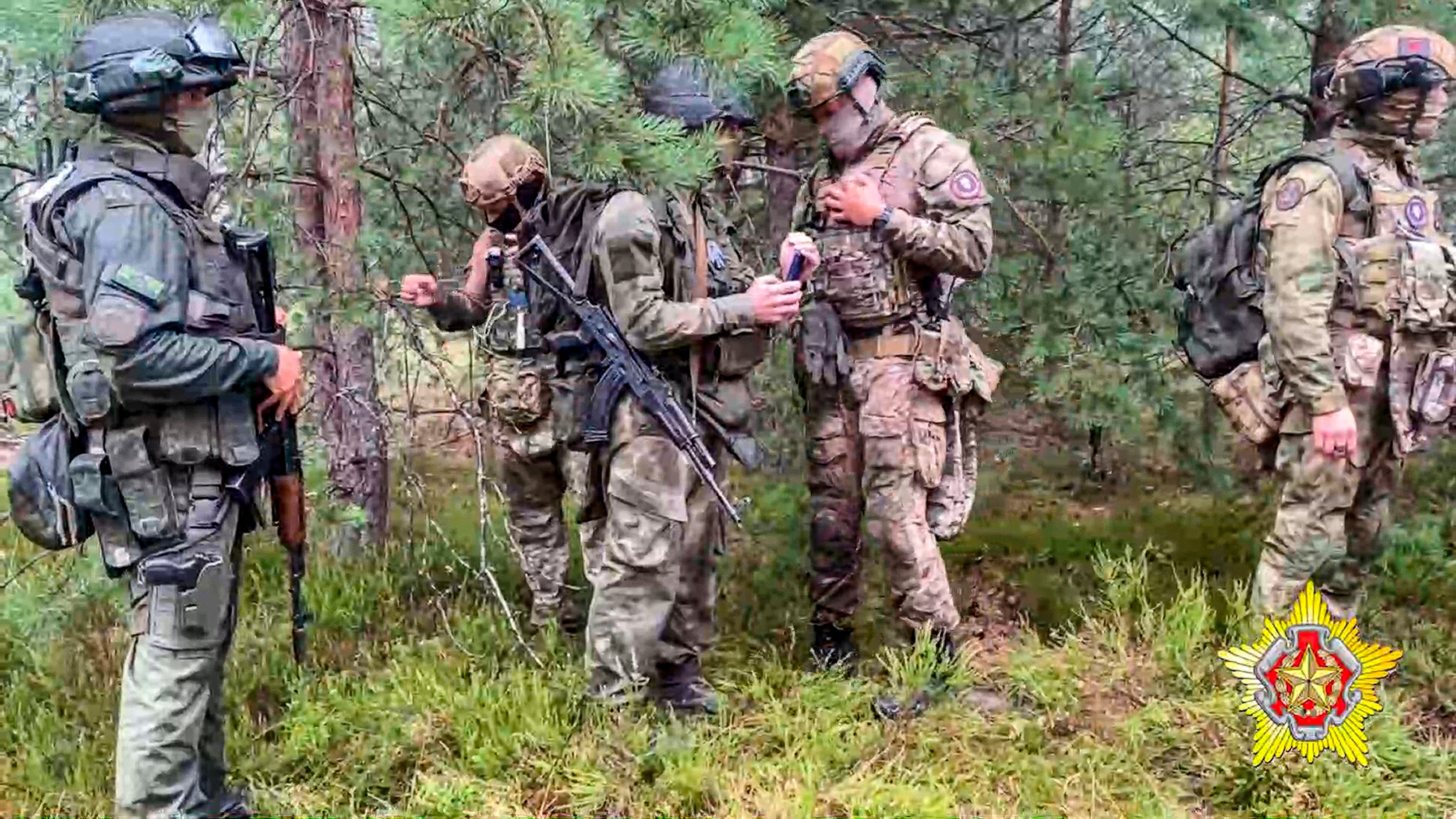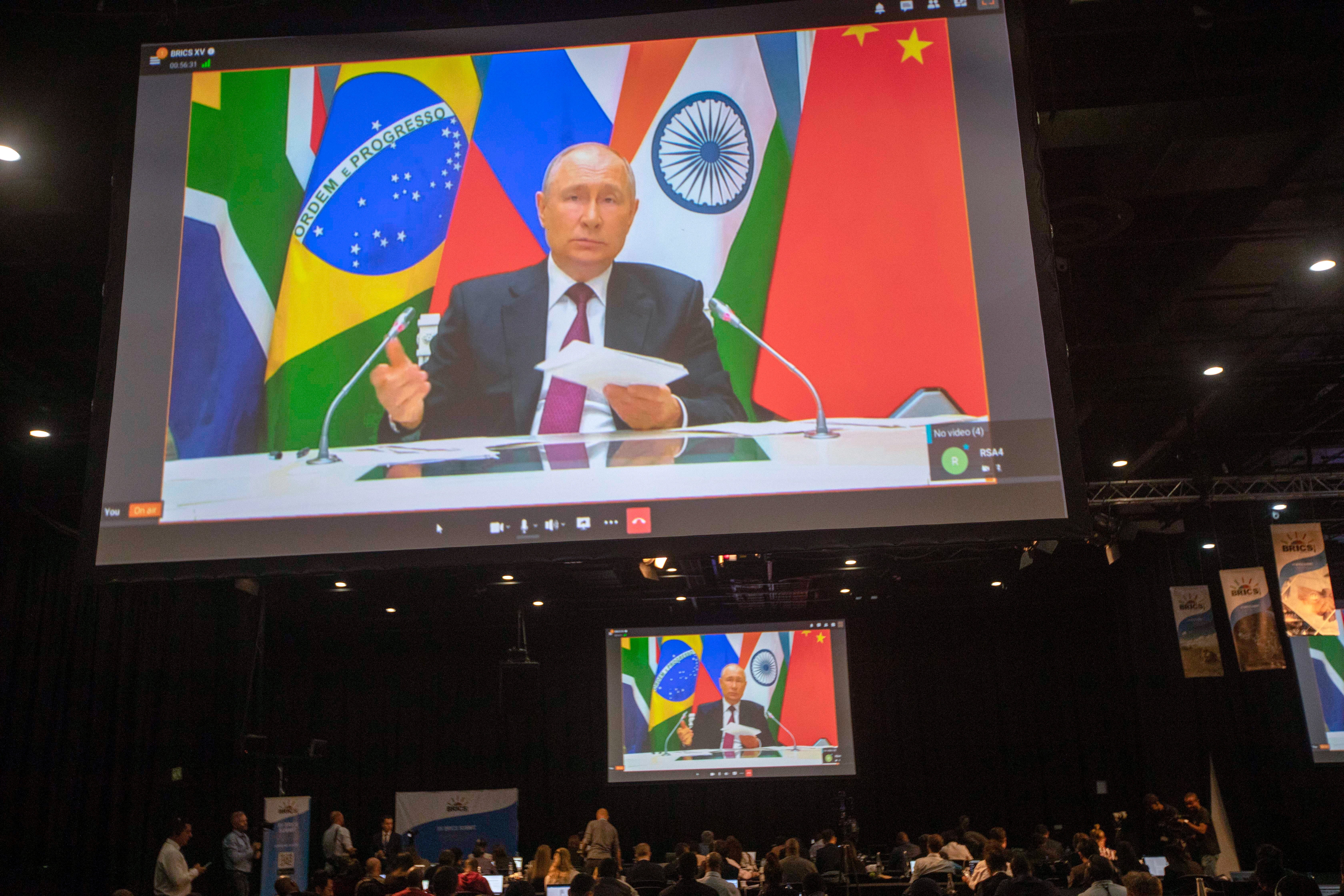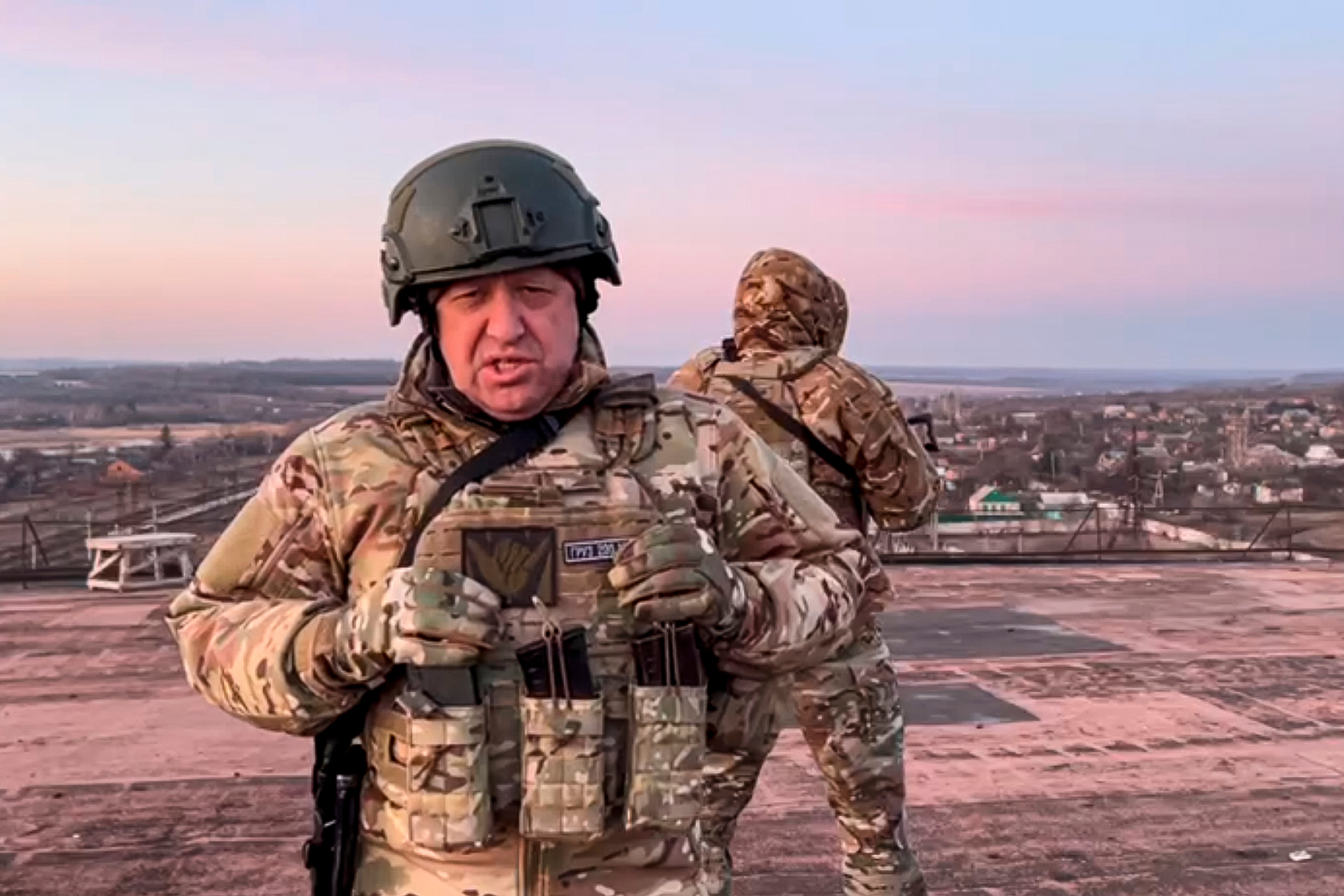Not only was Yevgeny Prigozhin’s name on the passenger list of his doomed Embraer jet, but also those of his closest military and civilian associates and of veteran Wagner commanders. Their deaths will leave the mercenary group without a viable leadership as it faces a fraught and uncertain future. The destruction of the plane has ensured that not only has the man who dared an attempted coup against Vladimir Putin been eliminated, but also others who would have been expected to lead a backlash by his mercenaries. Wagner has effectively been decapitated.
The removal of the group’s top echelon also raises the issue of who will take over lucrative operations in the Middle East and Africa, with the likelihood that they will pass into the hands of the Kremlin and its allies. It is not known what commercial interests Prigozhin’s wife, Lyubov, who is on holiday in India according to Russian opposition sources, has in her husband’s businesses and what she stands to inherit.
Among those aboard the plane was Dmitry Utkin, the co-founder of the group whose call sign Wagner – after Adolf Hitler’s favourite composer – was adopted as the group’s name. The former military intelligence and Spetsnatz (special forces) officer was regarded as Prigozhin’s right-hand man and was thought to have organised the march on Moscow in June.
Another, Valery Chekalov, was a key player in Prigozhin and Wagner’s financial affairs, as the overseer of all civilian projects abroad and the logistical support of the group. He was a senior executive of Prigozhin’s Concorde group, which won government contracts, including catering, which led to the Wagner boss’s nickname of “Putin’s Chef”. Chekalov headed Neva JSC, which owns Euro Polis LLC to which all Wagner’s Syrian and African projects are linked.
Yevgeny Makaryan, who had the military call sign “Makar”, and Sergey Propustin, call sign “Kedr”, were both experienced Wagner fighters who had served on a number of the group’s missions – including in Ukraine and Syria. Propustin, according to reports, supervised Prigozhin’s personal protection detail. Nikolai Matuseev, Russian researchers believe, could be Nikolai Matusevich who served in Syria.
Prigozhin was expected to move to Belarus under a deal brokered by the country’s president, Aleksandr Lukashenko, ending the putsch in June. But he appeared to be free to travel, appearing on one occasion at a summit hosted for African leaders by Putin in St Petersburg. A video was posted of Prigozhin earlier this week, supposedly filmed in Africa, declaring that Wagner was hard at work there.
The impression created was that Prigozhin had become too important to be exiled and sidelined by the Kremlin. It was, it seems, an image his enemies were prepared to be publicised while plotting to remove him from the scene permanently.
“There have been questions about why Prigozhin was allowed to walk around free after actually what he did against Putin. I think we may have the answer now,” said a Western security official. “If this was a planned attack, then whoever planned it wanted to have all the targets in one place where they would be vulnerable, like on a plane. One obvious question is why all the top people travelled on the same plane, an obvious security ‘no no’. Perhaps they were overconfident, or they believed assurances made to them.”
Around 6,000 Wagner mercenaries are in Belarus under the deal brokered by the country’s president which ended the mutiny. Poland had sent 10,000 troops to the border during military exercises by Belarus and Wagner forces.

What these fighters will do now remains unclear. There has been footage on social media of masked men – claiming to be from Wagner – vowing revenge. But it is highly doubtful they would be carry out the threats made against the Kremlin.
The deaths of Prigozhin and others are said to have caused anger in Wagner ranks, but also deep apprehension about what lies ahead. Seasoned Wagner fighters who had spoken about the group in the past are now extremely wary of speaking publicly. Nikolai Afanasyev who had served in the Syria campaign said: “Of course, our soldiers are upset and angry, but there is also a need to be careful. Nothing is clear, we need to understand what is happening, see what’s left before deciding what happens.”
Pro-Wagner social media accounts, including the Grey Zone, a Telegram channel with 500,000 subscribers, have openly accused the Russian Defence Ministry of bringing down the plane either through anti-aircraft fire or a bomb on board. Prigozhin they said was a “hero of Russia” murdered by “traitors to Russia”.
Sergei Markov, a blogger and former Kremlin advisor, wrote: “We should be killing our enemies, not our own. All our enemies are celebrating. The death of Prigozhin is Ukraine’s biggest achievement this year.”
Western and Ukrainian security officials have differing views on who may have carried out the attack – with elements within the intelligence service, military intelligence and the Russian Defence Ministry all deemed culpable.
In Kyiv, on Ukraine’s Independence Day, president Volodymyr Zelensky stressed his government was not responsible for Prigozhin’s death. “Everyone realises who has something to do with it,” Zelensky said.
Ukrainian military intelligence (HUR) reportedly had its own contact with Prigozhin – with claims that last January the Wagner boss offered to disclose Russian army positions if Ukraine stopped resisting his forces in Bakhmut. The service has refused to comment on the reports.

A HUR officer said “It was obvious Prigozhin was making lots of enemies within the siloviki [security apparatus]. But one thing is clear, this could not have been done without Putin’s direct orders. This is something our Western friends need to bear in mind when they ask us to make a deal with Putin. Prigozhin thought he had a deal with Putin and look how he ended up”.
President Putin himself was 325 miles (525km) away from the alleged crime scene, attending commemorations for the 80th anniversary of the Battle of Kursk. He did not mention Prigozhin in the address he gave. Those with an eye for symbolism noted that he spoke standing in front of an orchestra – the nickname for Wagner used by its fighters is “orchestra”.
Expressions of anger have continued in pro-Wagner social media. Roman Saponkov, a military blogger, wrote: “Prigozhin’s murder will have catastrophic consequences. The people who gave the order do not understand the mood in the army.”
One step to neutralise that threat appeared to have come in the dismissal of General Sergei Surovikin as the head of the country’s aerospace force.
Surovikin, who earned the sobriquet “General Armageddon” for his brutal methods in the Syria conflict, was known to have good relations with Prigozhin and shared his animosity towards figures in the security hierarchy – including the defence minister, Sergei Shoigu, and General Valery Gerasimov over how the Ukraine war is being conducted.
Surovikin is one of many commanders dismissed from their posts by Putin since the start of the war. Lieutenant General Sergey Kisel; Lieutenant General Rustam Muradov; Colonel General Mikhail Mizintsev; Major General Vladimir Seliverstov; Vice Admiral Igor Osipov; General Aleksandr Dvornikov and Colonel General Aleksandr Zhuravlev have all gone over the last 18 months.
Russia’s president, the author of the invasion, is still there, having survived a coup. While Prigozhin, the man who carried out the coup, failed to survive in spectacular fashion. But the next opponent who arises out of Russia’ fractured security should know that the only way to beat Vladimir Putin is to outmatch his sheer ruthlessness.
Credit: Source link




